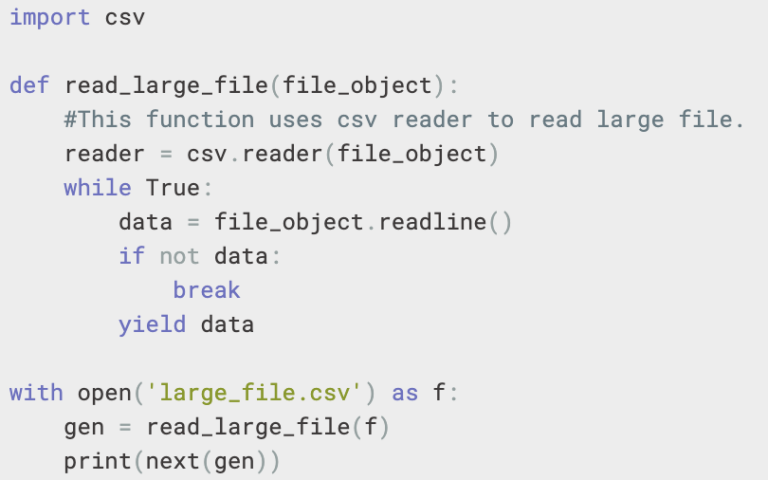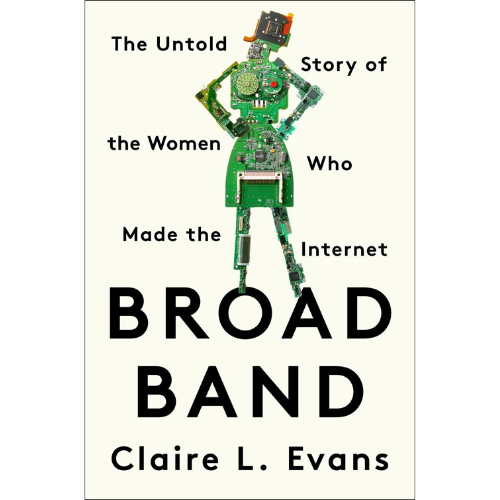
Buckle up for a new cycle of tech updates, data literacy tidbits, and more:
🎓 U.S. Department of Education eliminates Office of Educational Technology.
📚 Lesson of the Week: Improve your data literacy by learning about data extraction with Python in your pipeline.
💰 Google acquires cloud security startup Wiz for $32B, boosting multicloud cybersecurity.
📱 Weekly Tech Tip: Proofread, Rewrite and Edit Messages on iPhone.
📗 Book of the Week: “Broad Band” by Claire Evans.
Get a Quick Lesson In
U.S. Cuts Educational Technology Office
The U.S. Department of Education has eliminated its Office of Educational Technology (OET) as part of a broader workforce reduction that cuts nearly half of the agency’s staff.
Education Secretary Linda McMahon stated that the move reflects the department’s focus on “efficiency, accountability, and ensuring that resources are directed where they matter most: to students, parents, and teachers.”
The OET previously provided schools with guidance on emerging technologies such as AI, cybersecurity, and data literacy.
With its closure, schools will need to take a more independent approach to data literacy education, leaving some experts concerned about the lack of centralized support.
Lesson of the Week
This week’s lesson focuses on data literacy in action–learn how to extract and process data efficiently in your pipeline with Python.
Question of the Week:
You’re a budding musician struggling with writer’s block. A friend tells you about Udio, an AI-powered app that can help overcome creative hurdles.
Which of the following best describes how Udio’s innovative technology could assist you in creating new music?
Select one:
A) Modifying the function to yield a row from the CSV reader directly instead of reading a line from the file_object and then yielding.
B) Adding a time.sleep() function in the while loop to pause the script for a short while after each read.
C) Storing all the data into a list before yielding it.
See if you’re right–the answer is at the bottom!
Google Acquires Wiz for $32B
Google has signed a definitive agreement to acquire cloud security startup Wiz for $32 billion, marking Google’s largest acquisition ever.
This deal, following a failed $23 billion offer last year, strengthens Google Cloud’s security capabilities amid rising AI-driven cybersecurity threats.
Wiz will continue offering its services across AWS, Microsoft Azure, and Oracle Cloud, while integrating into Google’s cloud business to accelerate innovation.
The acquisition reflects Google’s broader strategy to enhance multicloud security, especially after previous cybersecurity purchases like Mandiant ($5.4B in 2022).
The deal is expected to close in 2026, pending regulatory approvals.
Weekly Tech Tip
Proofread, Rewrite and Edit Messages on iPhone
-
Confirm Compatibility: Ensure you have iPhone 16 or 15 Pro/Pro Max; request Apple Intelligence access.
-
Activate Tools: Highlight text → Tap “Writing Tools” or Apple Intelligence (atom icon).
-
Edit Options:
-
Proofread: Check grammar/spelling.
-
Rewrite: Rephrase text; tap multiple times for alternatives.
-
Tone: Choose Friendly, Professional, or Concise.
-
-
Review Edits:
-
Accept with “Done.”
-
Undo with “Revert” or compare using “Original.”
-
-
Final Check: Always manually reread before sending.
Book of the Week
Claire L. Evans highlights the overlooked contributions of women in computing history in “Broad Band.”
She explores pioneers like Ada Lovelace, Grace Hopper, Elizabeth “Jake” Feinler, and Stacy Horn, showcasing their roles in shaping the internet.
Through these stories, Evans emphasizes the vital impact of women in technology, revealing how they laid the foundation for the digital world we rely on today.
Additional Tidbits
Nvidia announces two ‘personal AI supercomputers’
AI search is starting to kill Google’s ‘ten blue links’
Italian newspaper says it has published world’s first AI-generated edition
Tesla’s Cybercab robotaxi event: the biggest news and announcements
Trump’s first 100 days: all the news affecting the tech industry
AI that can match humans at any task will be here in five to 10 years, Google DeepMind CEO says
How an obscure US government office has become a target of Elon Musk
Jump Back Into QuantHub

Lesson of the Week Answer:
A) Modifying the function to yield a row from the CSV reader directly instead of reading a line from the file_object and then yielding.




